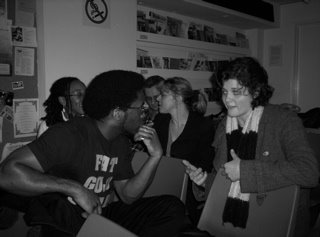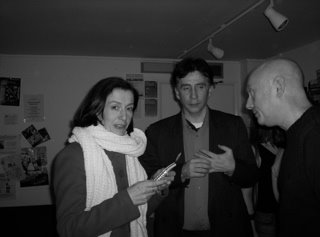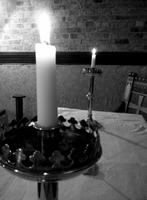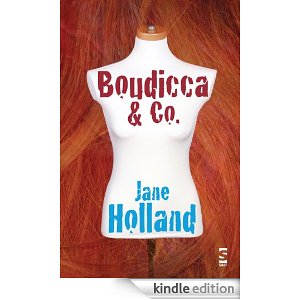This is a blog post from earlier this year on the site I run for readers and fans of my mother, Charlotte Lamb. I decided to replicate it here as it's quite a complex piece on the nature of women writing for other women, and in particular doing so in the late seventies, and might be of interest to readers of this blog too.
Festival Summer was first published by Mills & Boon in 1977.
The Magnificent Milfords are one of England's great theatrical families - brilliant, beautiful and witty. All except Katrine, who prefers to stay at home and has no yearnings for the limelight. But this summer, at the Cantwich Festical, she falls under the spell of the brooding, enigmatic actor-director Max Neilson, who soon co-opts her as his PA. But Max has other plans for Katrine beside fetching and carrying ...
This is a very early contemporary Lamb title, written just as she is emerging from several years of writing fairly conservative historicals, and it flags up territory she will revisit in later novels about the stage or actors in general.
Charlotte Lamb had little or no contact with the professional theatre, despite the number of novels where her hero or heroine are actors. Before becoming a writer, she worked for a spell at the BBC, where she came into contact with a number of acting folk, and of course she was a great theatregoer herself while still living in the London area. Lamb's knowledge of Shakespeare was exemplary, and she knew much modern drama too, reading plays even once her many children made it difficult for her to visit the theatre in person. Yet she never showed any personal inclination to write for the stage or to act herself, preferring the solitude of the novelist's life.
In
Festival Summer, Max Neilson shows all the hallmarks of a later classic Lamb hero: worldly-wise, cynical, brooding, charismatic, even domineering. The sample text in the inside front cover sums up that kind of hero's bleak outlook on life, and his reliance on the idea of a woman's
destiny - which usually turns out to be a place in his bed:
He looked into her upturned face with a menacing smile. "Cowards have to learn that it's easier to fight than to run away because no matter how fast you run fate can run faster."
Katrine provides the pattern for Lamb's younger heroines, the ones who have yet to taste life and whose primary objective is to keep a low profile and hence avoid trouble. They are the emotional 'cowards' Max Neilson refers to above.
Where
Festival Summer differs from some of the later Lamb titles following this same model is that Katrine has been suppressing her talent as an actress in order not to compete with her actor father and older siblings, all of whom are depicted as shallow, demanding, egotistical and self-serving - while Katrine herself is humble, modest, patient and a domestic slave. But she's not a doormat. There's an early scene in which she brushes her father aside and sorts out his clothes for him in a slightly brusque manner, making it clear that while she isn't keen on the limelight her siblings enjoy, she does need to feel in control of the household - and of
them.
The first kiss appears to come over halfway through the book - too early yet for the infamous Lamb bedroom scenes - and again, sets the pattern for later sexual contact in Lamb novels of this period. Goaded beyond endurance by her stubborn refusal to admit any talent, the hero Max grabs Katrine and kisses her:
Max laughed. "Ordinary? You're as ordinary as dynamite!" He caught her by the shoulders, his fingers biting into her flesh, so that she raised her head, gasping.
'Max! You're hurt ..." The words were smothered beneath his lips as he bent his head and kissed her with violent intensity, so hard that it forced her head back and stretched her throat until it was painful.
Sounds harsh, yes? Yet one sentence later, we get this: 'A sensation of intolerable bliss burst upon her.'
Max Neilson is by no means the brutal, domineering hero of later Lamb novels, who comes along to wake the sleeping princess with a kiss - and likes to make damn sure she's aware of what's going on - but he does appear to be a prototype for that man. Indeed, these archetypal Lamb heroes are disturbingly reminiscent of Sylvia Plath's "Daddy", a visceral proto-feminist poem written about fifteen years earlier than
Festival Summer:
Every woman adores a Fascist,
The boot in the face, the brute
Brute heart of a brute like you.
Here, the modest Katrine gets her reward. Max, who sees through her good-girl disguise to the star material beneath, tricks her into displaying her talent for all the world - but particularly her own family - to see. Because of this, she is cast in a major role, acting alongside her father and sister in the play festival of the title, and gains everyone's admiration. 'You could be a great actress,' Max tells her, near the end of the book.
In the final chapter, we see that Katrine's talent is undeniable, a shining future in theatre absolutely guaranteed. So does she pursue a career in the theatre, and outshine her talented father and siblings? No, because Max asks her to marry him immediately after the festival and she readily agrees, insisting that she wants to have children, not a career.
Those five minutes of fame are all Katrine wants - swiftly reverting to good-girl type before any of her readers can throw the book across the room. She will be quite happy to return to ironing shirts and cleaning up after other people, now she has a man in her life. Here the heroine validates the domestic drudgery of the typical late seventies romance reader by giving up her own dreams too and choosing marriage instead of a career.
Max resists for a few lines, 'incredulous' at this unthinking sacrifice: 'You mean you would give up the theatre, despite having made such a hit, just to have babies?' and then rapidly capitulates. But Katrine has earned the good virgin's reward with her sacrifice. His brooding violence is gone. She has tamed the beast, and now finds 'passion' in his eyes instead of anger and impatience.
It's hard to read these earlier Lamb novels now without being aware of how much British society has changed since the mid-late seventies. Yet these main characters are drawn in a complex way, with deeply contradictory impulses and hang-ups Freud would have recognised, something which is not always true of today's more politically correct short romances. Even the secondary characters here, the rest of the Magnificent Milfords - the flamboyant and emotionally flawed father, in particular - are masterpieces of psychological understanding.
Nor is Katrine's decision to abandon a career in acting irrelevant to today's readers, despite the three decades that have elapsed since it was written. Most women these days still face the same choice that Katrina faces here (even if she doesn't see it as a dilemma) once children arrive. Now, however, women are expected to 'have it all' - which, in real terms, means we are expected to cope with both the responsibility of raising children and the demands of an ongoing career - where that possibility would not have been open to the vast majority of women in post-war Britain, when my own mother was having her first children.
The irony of all this, of course, is that the writer herself was managing to do both, whilst tacitly condoning her heroine's decision to throw away her chance of a glittering career and be a 'stay at home mum' instead.
Visit the
Charlotte Lamb fan blog, or see her books listed on
Wikipedia.









